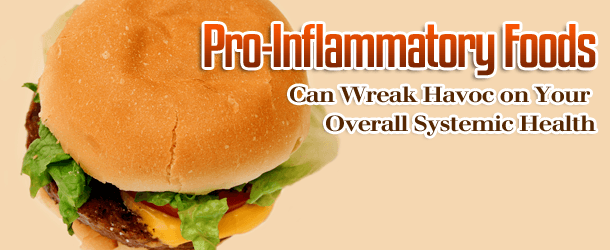
Marisa Zeppieri-Caruana, 34, didn’t look at all sick when she found out. “I was in amazing shape. I was a happy, busy, thin 23-year-old when I started getting strange fevers and feeling extremely tired. My doctor ordered some blood work and that’s when I learned that my inflammatory markers were through the roof.”

Because Zeppieri-Caruana was in nursing school at the time, she knew exactly what that meant: Her white blood cells, which typically help fight off illness, were actually wreaking havoc on her once-healthy body.
Under normal circumstances, some inflammation is a good thing: it’s your body’s natural protective response to an illness or injury. You know how your finger can get red and puffy when you get a cut? That’s your white blood cells shielding your wound from contamination and infection. That’s acute inflammation.
Chronic or systemic inflammation–the kind that Zeppieri-Caruana was dealing with–is when the “protect me” signal misfires.
“Essentially, white blood cells inappropriately move into tissues, causing destruction,” explains Floyd Chilton, Ph.D., director of the National Institutes of Health-sponsored Center for Botanical Lipids and Inflammatory Disease Prevention at Wake Forest Baptist Health School of Medicine, Winston-Salem, N.C. This reaction can happen anywhere in your body.
“If the haywire inflammatory response happens in the heart, you wind up with heart disease; if it happens in the joint, it’s arthritis; in the brain, it might be dementia,” Chilton says. In Zeppieri-Caruana’s case, her widespread inflammation was a symptom of lupus, an autoimmune, chronic inflammatory condition.
In fact, it’s widely believed that chronic inflammation plays a significant role (as either a cause or effect) in many diseases, including type 2 diabetes, autoimmune diseases, such as arthritis and Crohn’s disease, and the three top killers in the United States: heart disease, cancer and stroke.
Emerging research is focusing on the link between inflammation and brain disorders, including Alzheimer’s disease and dementia. Obesity is one of the biggest drivers for inflammation–fat tissue actually produces and secretes over 100 different types of inflammatory messengers. (Losing weight, including through gastric bypass, can significantly lower inflammation markers, according to a 2011 study in the journal Surgery for Obesity and Related Diseases.) But obesity is not the only cause.
“It’s clear that genetics, family history, lifestyle and stress all play a large role in inflammation,” says Christopher P. Cannon, M.D., a professor at Harvard Medical School and author of “The Complete Idiot’s Guide to the Anti-Inflammation Diet.”
The tricky thing with inflammation is that it sometimes has symptoms, such as pain and lethargy, but often doesn’t. You won’t know you have inflammation until you get tested.
“People who are a little overweight, who have borderline high cholesterol, borderline high blood pressure–those are the people who really need to be tested now,” says Cannon. (A simple and affordable blood test ordered by your general practitioner can diagnose inflammation.) “If you find elevated markers at that point, you can really help ward off inflammation-rooted problems in the future with aggressive prevention.”
“Eating well is a really powerful tool against inflammation,” Cannon says. “(An anti-inflammatory diet) is actually not a terribly complicated diet. First, you need to cut back on unhealthy things, such as saturated fat, sugar, refined carbohydrates and processed food.” Think in terms of big-ticket items: Don’t eat steak more than once a week, avoid fried foods and limit ice cream to special occasions.
“I don’t eat any fried food or drink soda–and I wouldn’t be caught dead in a fast-food chain anymore,” laughs Zeppieri-Caruana. “These changes–along with my meds–have made a world of difference.”
In addition to limiting all the unhealthy stuff, you need to ramp up the healthy foods. Says Cannon: “Add in more foods that help alleviate and prevent inflammation, such as ones high in omega-3s, fruits and vegetables and whole grains.” A healthy diet, plus key lifestyle upgrades (Healthy weight! No smoking!) can make all the difference.
– Holly Pevzner
EatingWell is a magazine and website devoted to healthy eating as a way of life. Online at www.eatingwell.com.
(c) 2012 Eating Well, Inc. DISTRIBUTED BY TRIBUNE MEDIA SERVICES, INC.

